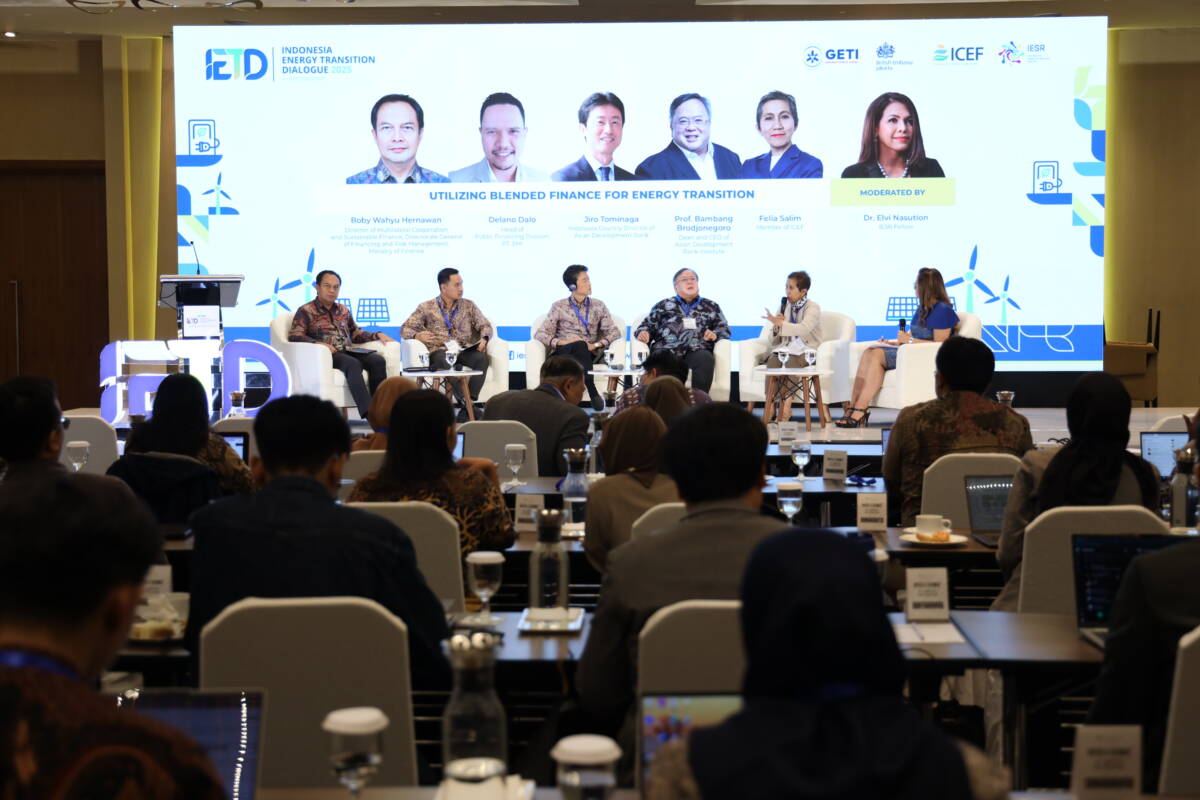Jakarta, October 30, 2025 – The energy transition is not only about technology, but more about policy design and financial instruments.
Bobby Wahyu Hernawan, Director of Multilateral Cooperation and Sustainable Finance, Directorate General of Finance and Risk Management, Ministry of Finance, in the session “Utilizing Blended Finance for Energy Transition” at the Indonesia Energy Transition Dialogue (IETD) 2025, stated that there are at least three things to accelerate the energy transition: reducing investment risk (derisking), alignment, and simplification.
Bobby explained that the government has issued fiscal policies aimed at reducing investment risks in clean energy projects, for example through government guarantees or other supporting instruments to make the projects more attractive to investors.
“Regarding alignment, the need for alignment between public and private interests is key. Public objectives are oriented towards social and environmental benefits, while the private sector has an economic incentive to generate profits,” Bobby said.
While the simplification focuses on simplifying the financing structure of energy transition projects, it remains complex so that they can be expanded and replicated across Indonesia.
Delano Dalo, Head of the Public Financing Division at PT SMI, stated that to attract funding, a list of financially viable projects (bankable projects) must first be established.
“To achieve a bankable project means technical assistance is required to prepare the project. Therefore, PT SMI has also begun forming a project preparation team whose task is to assist the government and private sector in preparing bankable projects before seeking funding,” said Delano.
Bambang Brodjonegoro, Dean at ADB University, emphasized the importance of strengthening the Public-Private Partnership (PPP) scheme. This scheme can be considered ideal for bridging government financial constraints and private sector participation.
“However, there are still many issues that need to be addressed in the PPP scheme, at least related to bureaucracy and the general mainstreaming of the scheme. Specifically for the energy sector, the issue of a single offtaker will remain a challenge because there are no offers from other buyers,” said Bambang.
Felia Salim, an economist and member of the Indonesia Clean Energy Forum (ICEF), stated that when developing a project cost structure, non-technical risks, ranging from political risks to the cost of inefficiency, must be taken into account.
“To make this project more affordable, we must implement a series of steps to create appropriate derisking instruments,” said Felia.
Jiro Tominaga, ADB Indonesia Country Director, stated that having derisking instruments and incentive models applicable nationally increases the likelihood of project replication.
“In addition to creating derisking instruments, we also need to gradually create a level playing field between renewable energy and fossil fuels. If fossil fuels continue to receive large subsidies as they currently do, it will be difficult for renewable energy to develop,” said Jiro.
The Indonesia Energy Transition Dialogue (IETD) 2025 is organized by the Institute for Essential Services Reform (IESR) and the Indonesia Clean Energy Forum (ICEF), with support from the British Embassy in Jakarta through the Green Energy Transition Indonesia (GETI) project. The comprehensive recommendations of IETD 2025 can be accessed at the link IETD 2025: Three Key Recommendations for Delivering an Impactful Energy Transition – IESR

